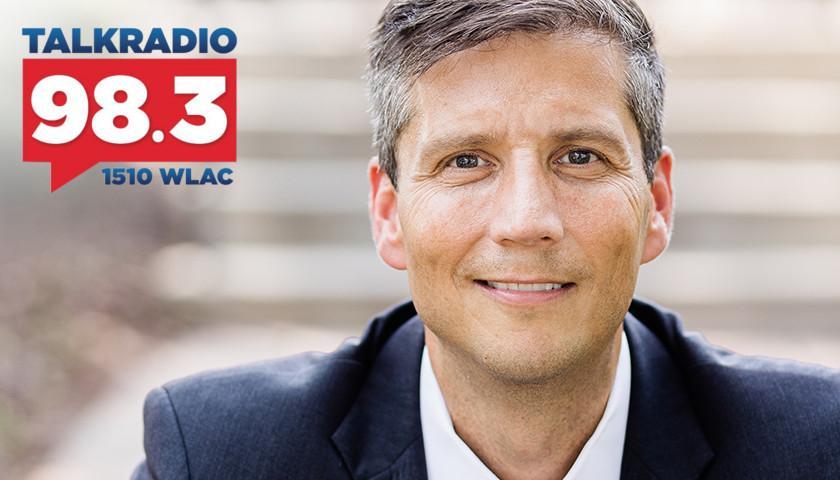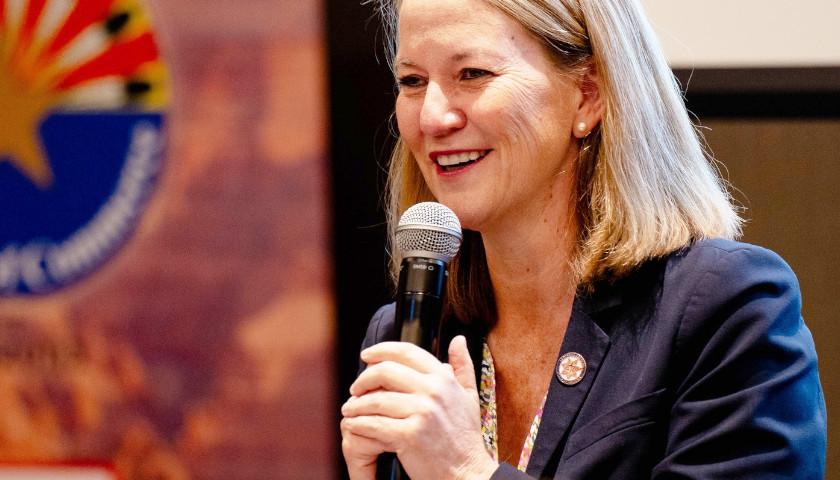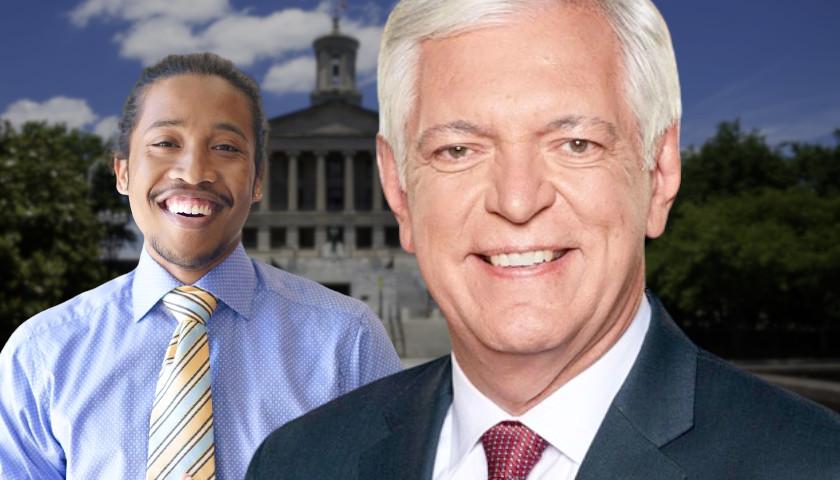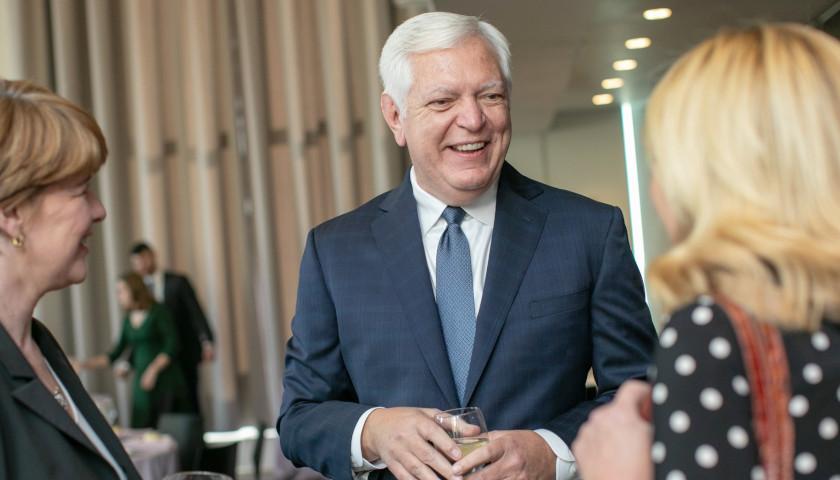Attorney and newest all-star panelist Braden Boucek joined host Michael Patrick Leahy on Monday’s episode of The Tennessee Star Report to discuss to administrative overreach and bizarre secrecy surrounding the Covenant Killer Manifesto and how lawmakers convening in the special session could obtain and review those materials today.
TRANSCRIPT
Michael Patrick Leahy: 6:18 AM – in studio. Our very good friend, all-star panelists – the most recent and plausible Allstar panelists, Mr. Braden Boucek with Southeastern Legal Foundation.
Former assistant U.S. attorney, right?
That’s real stuff.
Braden Boucek: Well, thank you. It was, it was definitely real for me too.
Michael Patrick Leahy: It’s a lot of, and it’s really getting that gig out of law school – getting an assistant U.S. attorney gig. That’s a pretty big deal, isn’t it?
Braden Boucek: Yeah. I didn’t go straight out of law school.
I worked for the attorney General’s office and then I was an A.D.A. in Williamson County, which was a great place to be.
An A.D.A. shout out to all my friends in the 21st – wonderful, wonderful place.
Michael Patrick Leahy: Williamson County people are very lucky. You have just really great experience in litigation, don’t you?
Braden Boucek: Sure, yes. I don’t like to toot my own horn.
Michael Patrick Leahy: I will do that for you.
Okay, so this isn’t your arena – but I was talking with Deborah Fisher from the Tennessee Coalition for Open Government.
Braden Boucek: Yes; big fan of Deborah Fisher.
Michael Patrick Leahy: And we were talking about this law Tennessee Code Annotated, I think it’s 10-7-504, which allows Tennessee State legislators, if a committee passes a resolution to this effect or of a the joint session of, or either house were to pass a bill to this effect, they can view any document in the possession of Tennessee Bureau of Investigation.
It’s easy to be done. They’re in special session right now. Right. A committee could convene today – any of the committees could convene – and pass a resolution in the committee, ‘We wanna see the Covenant Killer Manifesto or the all those documents.’
The document exists in three locations today: Metro Nashville Police Department, FBI, and the Tennessee Bureau of Investigation.
They could all see it today.
If a committee were to form and just say, ‘We want to see it.’
I’m just curious, do any thoughts as to why the Tennessee General Assembly has not yet taken that action?
Braden Boucek: I can’t figure out how I would find it impossible to engage in the task of the special session if I was one of the lawmakers without having reviewed the manifesto and attended documents thoroughly. The only reason why we’re holding the special session during an irregular period is, of course, because of the Covenant shooting itself.
Michael Patrick Leahy: Or you’d use the term ‘irregular period.’
Now I’m gonna play lawyer here, which I’m not, but I’m on the radio and I did stay at the Holiday Inn last night.
Well, it’s not an ‘irregular period’ according to the state constitution. It is an ‘extraordinary occasion.’
“On extraordinary occasions” you can hold a special session.
Braden Boucek: I would find it impossible to move into this ‘extraordinary occasion’ without knowing the reason why we are considering passing legislation and other measures designed to prevent the unfortunate events that occurred at Covenant.
Of course, there’s so many competing narratives ranging from mental illness, to personal animus, to political terrorism – any one of which would require a very different policy solution.
And I simply don’t understand how we can be asked that could have been asked as lawmakers to engage into the monumental task of trying to prevent something as horrific as the Covenant shooting without knowing. Why the shooting occurred in the first place.
Michael Patrick Leahy: You’re almost a unicorn, Braden, because you’re an attorney. who makes common sense, right?
That’s a good common sense argument. I have heard – although we don’t know for sure – that a couple of legislators have viewed. the manifesto. A couple of them.
But, I’ve heard different versions of it. One, that they’ve gone to the TBI to see it.
The others, they’ve gone to Metro Nashville Police Department to see it.
Again, rumor – because, you know, nothing serves advancing the cause of public policy like ‘rumor.’
Braden Boucek: No.
Michael Patrick Leahy: This is why this all ought to be out in the open.
Braden Boucek: Of course. I don’t think the general public has benefited from the suppression of this evidence at all.
Michael Patrick Leahy: No, not at all. And because if evidence is suppressed, then rumor arises.
Braden Boucek: Rumor arises, and as you well know, rumors are rife about the contents of the manifesto. And they span from the ludicrous, to the conspiratorial, to the plausible.
And the political debate is already rancorous, it might as well be informed by facts.
Michael Patrick Leahy: I think that again, you have committed another act of common sense – two in a row.
Braden Boucek: I think that some of the thinking behind this was that it would be too explosive if it got out there.
Michael Patrick Leahy: I’ve heard that from a member of Metro Council who talked to a police officer who’s seen it and used that word.
Braden Boucek: Yeah. So, I simply don’t understand it.
It’s as if the conversation would not occur, if the documents were not released – like everybody would just sit back on their hands and say, ‘Well, I guess we’ll never find out.’
I mean, the conversation is going to occur. It can only be a more beneficial conversation if the actual facts are out there in forming the discussion.
Michael Patrick Leahy: Now, let me add this. I know that many members of the Tennessee General Assembly listen to this program. And I have a message for them as to what they could do today – today if they wanted to.
There are many bills out there that have been introduced.
A very simple bill could be introduced today, which says the following – it would be an amendment to Tennessee Code 10-7-504.
Right now, that law says that if anybody wants to see it and either either house passes a law or a committee passes a resolution saying they wanna see it, they can see it, but they are constrained by that law right now from making it public or from using it for any, for anything that’s non-confidential.
You just need a little, one line change.
Braden Boucek: Sure.
Upon reviewing it. They can make it public. See, this would solve all the Covenant Killer Manifesto problems right now.
And so I think it’s a very simple solution. And I’m just gonna recommend right now to anybody in the Tennessee General Assembly that wants the truth out. It’s within your power to do it.
They should consider introducing such a bill, in my view.
Braden Boucek: Well, it would certainly achieve the goal of transparency and tamp down this debate, which is getting more and more toxic.
I will say, I mean, I think that the option where lawmakers would see it and not be allowed to discuss it or allow the general public to see it, is perhaps worse than the status quo.
Michael Patrick Leahy: I completely agree, and that’s why this proposal ought to go out there.
But you’re right.
And the other thing is, just to say again, back to rumor.
The rumor is, that in order to see the Covenant Killer Manifesto, a handful of state legislators have been allowed, and I’ll say either into Metro Nashville Police Department or TBI, but have only been able to see it.
If they sign a document saying they won’t tell anybody about it.
Braden Boucek: Why is anybody agreeing to this? I do not understand how we’ve tolerated this ludicrous phenomenon?
Michael Patrick Leahy: Well, a couple things to say about that. Wherever such a requirement has been made, first, it is not statutory.
If you look at the law – this is the business you’re in – it simply says that, that such information will be confidential. Okay, that’s fine.
But the extra step of requiring that to view it, you won’t tell anybody about it is beyond statutory and it’s an example in my view of overreach of the bureaucrats.
Braden Boucek: Yes, of course. I don’t know why they think that they’ve got any business managing the free flow of information among a liberty loving people and beyond that, I have no idea why we’re tolerating this as even remotely normal.
I mean, I can’t imagine doing this in any other context. I mean, imagine if there had been a police shooting in Memphis.
And there were documents relevant to the motive out there, and we just had this conspiracy of bureaucrats to throttle the free flow of information because they thought the public, general public couldn’t handle knowing.
Michael Patrick Leahy: ‘You can’t handle the truth,’ right?
Braden Boucek: I simply cannot fathom that anybody would tolerate that.
Michael Patrick Leahy: There is a troublesome trend in America today. And that is this trend among bureaucrats, the unelected, fourth branch of government, right?
There’s nothing in the constitution that identifies a fourth branch of government, but it has evolved. As the unelected fourth branch of government.
Braden Boucek: ‘Metastasize’ might be a better verb.
Michael Patrick Leahy: This is why they pay you the big bucks.
Braden Boucek: That’s right. Yep.
Michael Patrick Leahy: That’s a very good verb. Yeah, it has – can I steal that?
Braden Boucek: Oh, absolutely. As long as you’re directing it at bureaucrats.
Michael Patrick Leahy: It has metastasized bureaucracy at every level: state, federal, and local. Now, it’s not local. Has metastasized into a fourth branch of government – unofficial.
But they think they know better than us, in essence, and they wanna keep information from us.
I think that’s very, very bad.
What would the Founding Fathers say about this?
Braden Boucek: Yeah. Well, I mean, they were as usual, aware of this tendency.
I mean, they didn’t call them bureaucrats. The king was attended by ministers and they all warned of a government that would be run by these ministers who would be even less accountable than a king himself.
And so I think that the bureaucratic state is wholly incompatible with our founding era traditions, and the fact that we’ve now reached a point in time where the bureaucrats just don’t do most of the functions of government – but they’re now assuming themselves a role in manipulating the terms of public debate based on the expectation that there’s some things that the general public just can’t be trusted to know, is outrageous.
Michael Patrick Leahy: Yeah. I agree with you completely on that and well, we’ll see how the special session will play out. I think it has the potential to be a huge debacle.
We hope everybody will be safe today, but you know, the outstate group Moms Demand Action – funded by Michael Bloomberg – they’re calling for protests today in Legislative Plaza, and so that’ll begin at nine o’clock or so.
And we’ve done some secret recordings of some far left groups. They claim they’re gonna be there armed. This could be very, very bad. And so we’re gonna pray that it doesn’t turn violent, but we’ll see how it turns out.
Meanwhile, if any members of the Tennessee General Assembly are listening this morning and they want to see the Covenant Killer Manifesto, they can.
Go into a committee, pass a resolution to see it, they’ll let you see it. And introduce a bill that will amend 10-7-504 of the Tennessee Code Annotated that will allow you to make that information public.
Common sense, don’t you think?
Braden Boucek: It would certainly accomplish the goals of transparency and we’re here to have a special session debating this issue, and that’s a key fact.
Michael Patrick Leahy: Well, congratulations on your great victory in court. And, you know, no more ‘sidewalk ransom.’
Braden Boucek: No more ‘sidewalk ransom.’ It will not result in a hundred million dollars for me to squander as I’d much, as I would much prefer to do.
Michael Patrick Leahy: I’m gonna invite Van Jones to join us next time I’d love to talk to him.
Braden Boucek: Just let’s have a segment about squandering.
Michael Patrick Leahy: Yeah, let’s – Van, if you’re listening we’re gonna invite you in when Braden’s in next, and we’ll talk about how long it takes to blow through a hundred million dollars. You’ve got the record. Two years, van?
Braden Boucek: I’ve got questions.
Michael Patrick Leahy: And how did you do that?
Alright, Braden, thanks for joining us.
Up next, Crom Carmichael.
This is the Tennessee Star Report. I’m Michael Patrick Leahy.
– – –
Tune in weekdays from 5:00 – 8:00 a.m. to The Tennessee Star Report with Michael Patrick Leahy on Talk Radio 98.3 FM WLAC 1510. Listen online at iHeart Radio or Spotify.
Photo “Braden Boucek” by Southeastern Legal Foundation.




